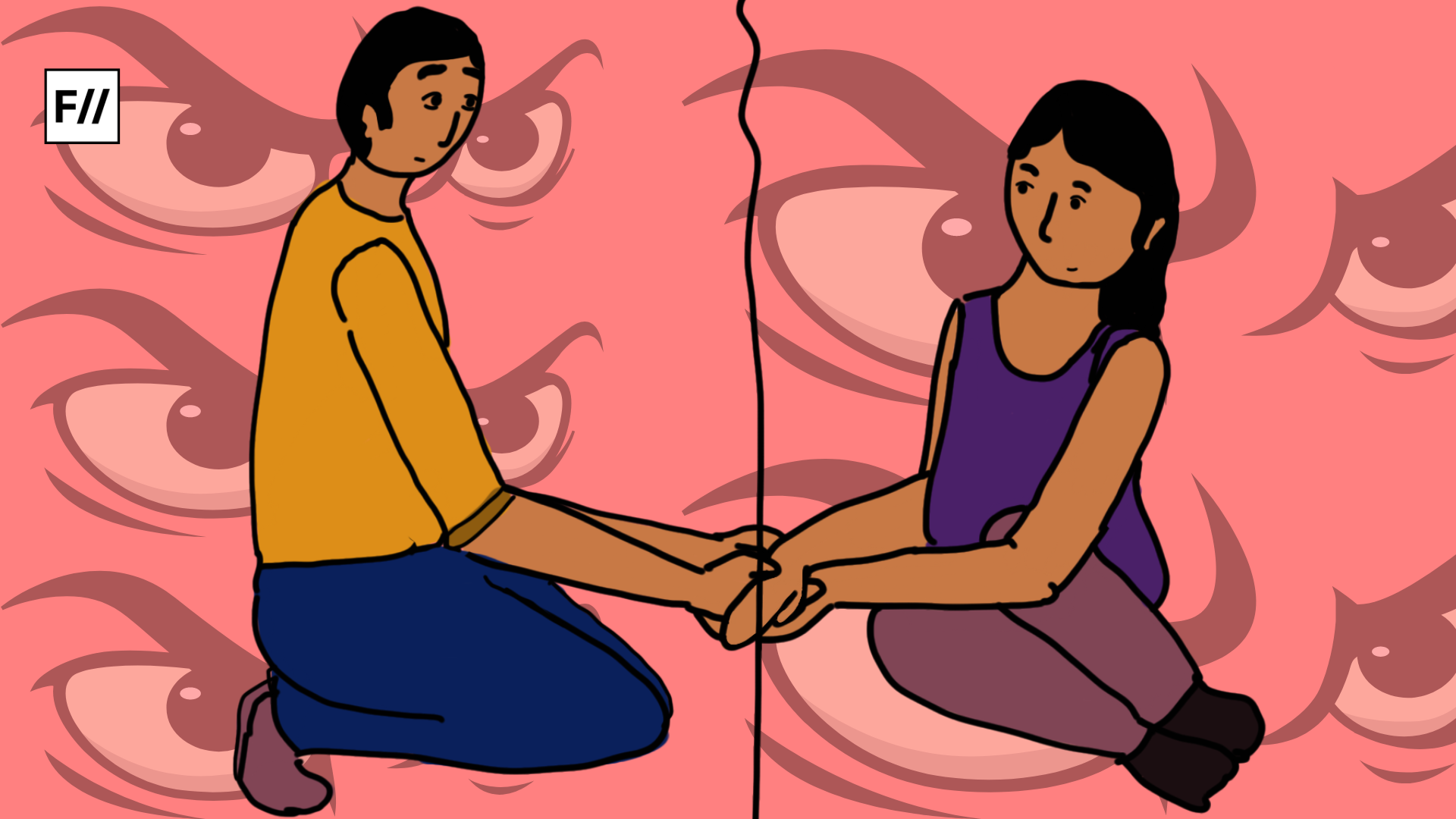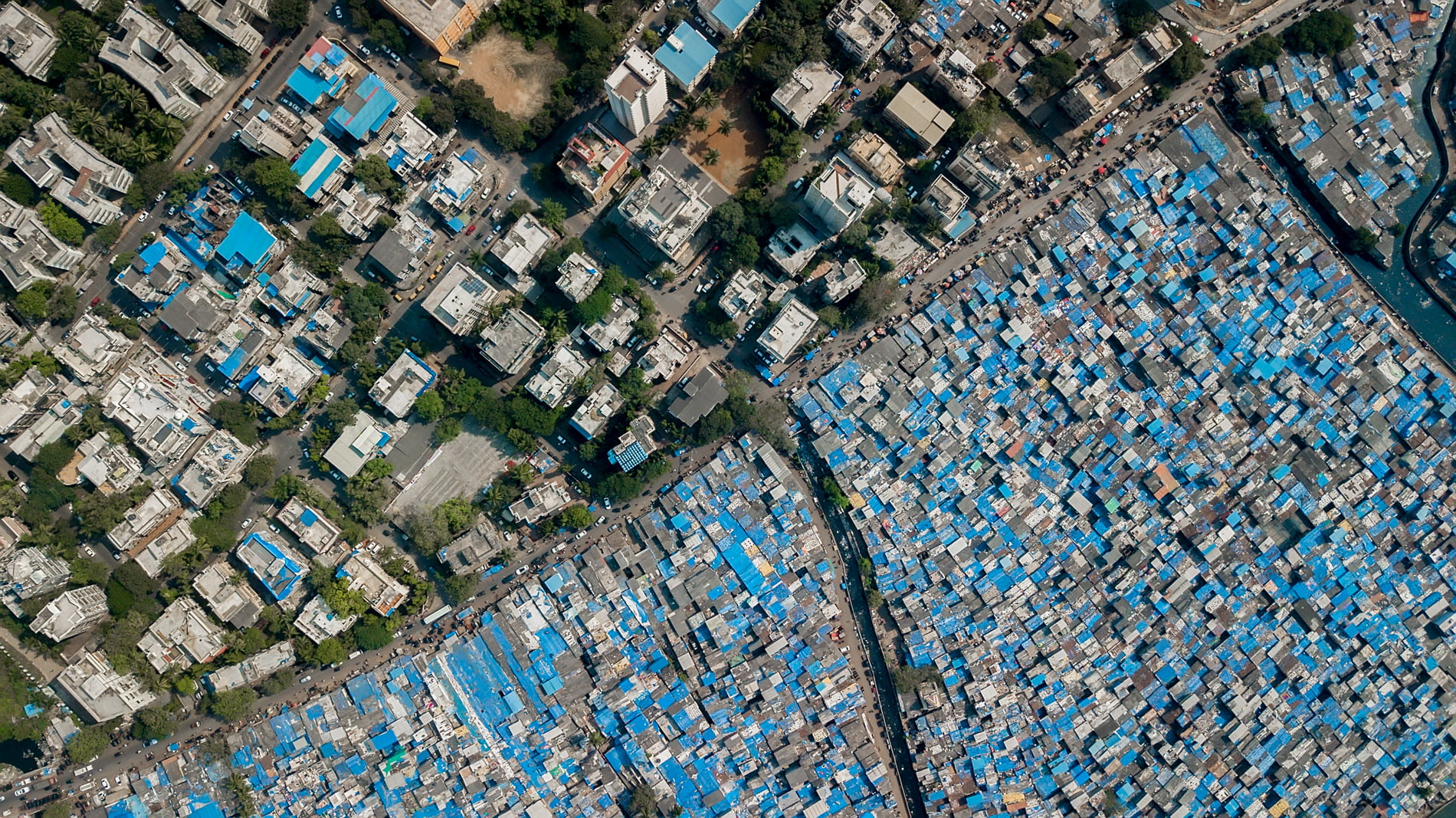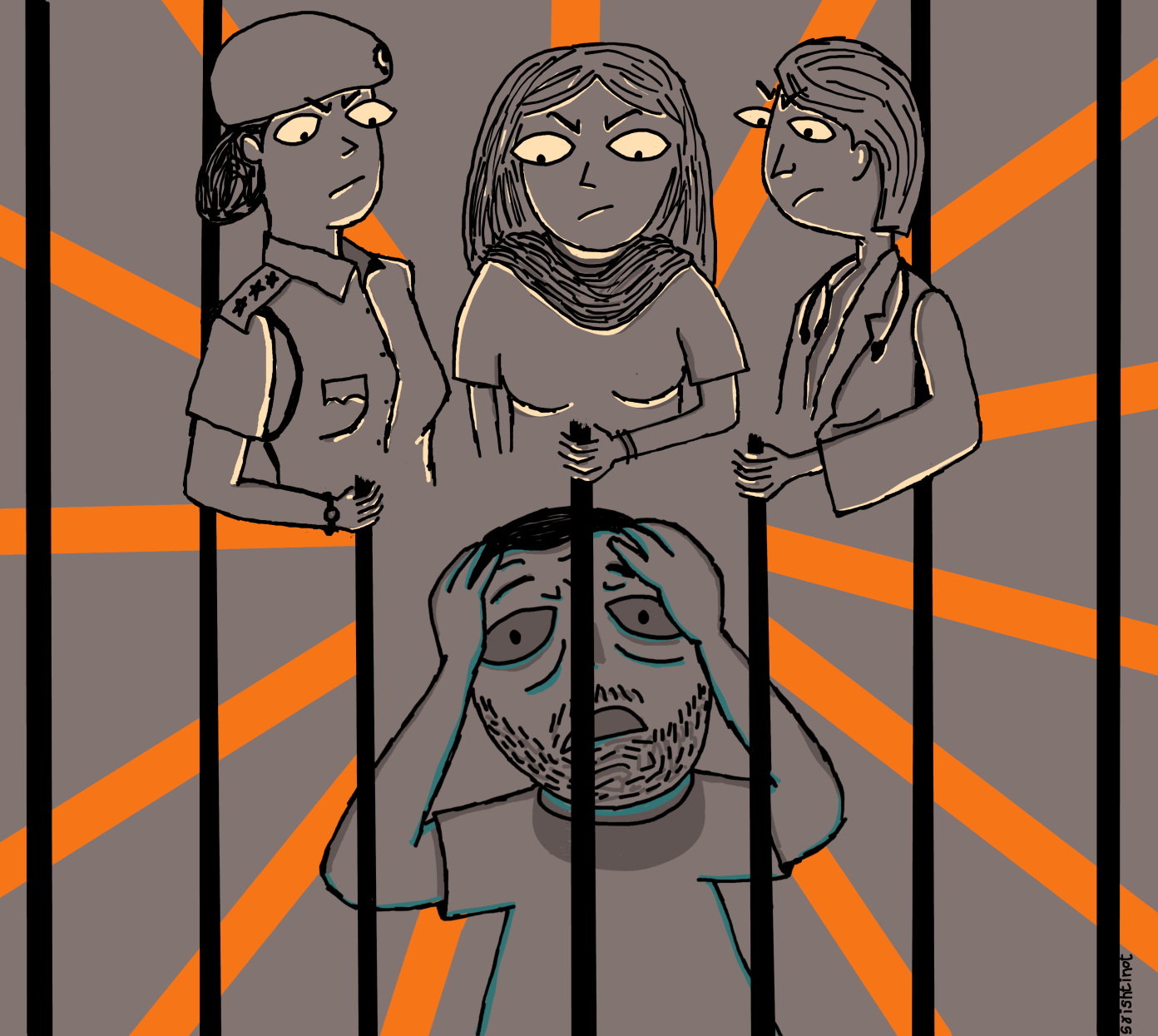Editor’s Note: FII’s #MoodOfTheMonth for February 2023 is Love In Post Modern India. We invite submissions on this theme throughout the month. If you would like to contribute, kindly refer to our submission guidelines and email your articles to shahinda@feminisminindia.com
We loved a million years ago and we love now. Our ideas of love, intimate associations and attraction might have changed and developed over time with new values, ideals, hopes and desires, sociopolitical and cultural exchanges, with new cities and big corporations flaring up with each day, wars and conflicts but for us, the love remained – rather it sustained.
Today, however, love is unique – overcoming the remains of post-modernism, and capitalist consumerism and still crushing the various structures that restrict its flow and course.
Love in Post-Modern India
Love in post-modern India, with the state evolving into an urban jungle, rural life getting more and more obscure, new cities, new governments, new ideologies and understandings, the idea of love also changed. Love is now a new value system that still carries its traditional and cultural importance, rather drags with itself.
The intimate exchange between people has evolved and new values are attaching themselves to it and getting reinforced with each day. We might not write letters religiously now in long-distance intimate relations, but we have taken refuge in digital spaces like video calls, emails, Whatsapp messages Etc to maintain and sustain the exchange. Part of this is possible only because we have reached a digital pinnacle in the history of online and digital revolutions. And partly because we still have high expectations and admiration when it comes to maintaining our intimate relationships.
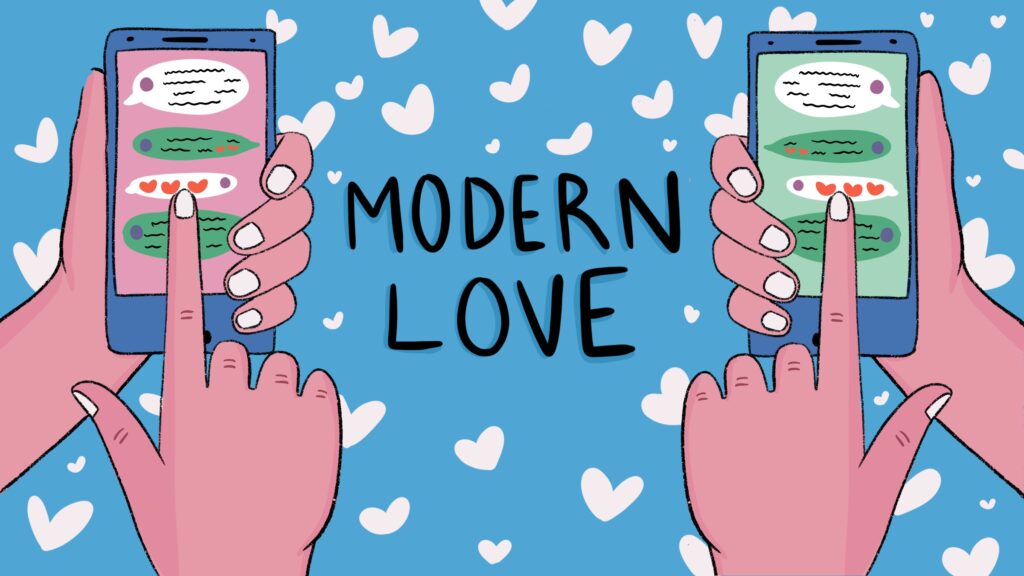
People now might use online dating platforms to replace in-person wooing and courting, but the idea of love remains at the core of our dating life. In addition, the pandemic that restricted our movement and public gatherings reinforced our presence and navigation of love and romance in the digital landscape. A large number of people availed of online platforms and digital applications to talk and carry on their relationships even marriages were performed online during the pandemic.
Lata Jha in an article for the Mint says, “The surge in usage is especially strong outside metro cities, which now account for 70% of users of the dating apps such as Tinder, Bumble and TrulyMadly.” Dating online becomes a safer option when you are living in an exhausting patriarchal and orthodox country where love has been deemed a sin and against the core values of our culture. It is rather convenient and secure to explore love and sexuality online rather than meeting and dating offline as the fear of getting caught by fringe groups and relatives remain at the core.
Most of the time people want to find love and romance in a safer environment and digital space has been that safer space for a few years now. Although the risks online are also poignant. “The distinction between our online and offline world is blurring. As a result, the time spent online is on the rise, said Shalini Singh, founder of Andwemet, a dating service for 25-plus single Indians that has seen its user base triple annually in the past two years,” says Jha.
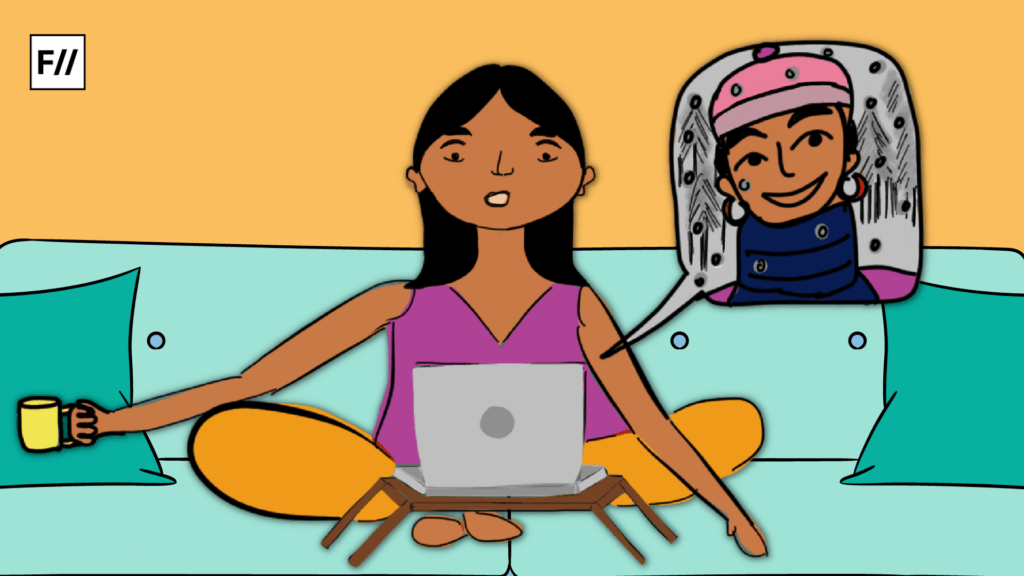
But with the notion of love and romance evolving and our experiences and understanding about it getting broader, the restraints from power structures and authoritative establishments are getting even bigger.
The rise of the right-wing majorly in the West and primarily in India has abruptly reshaped our idea of romantic partnerships and exchanges. Postmodernism might have led us to dismantle the existing power structures like institutionalised religion, authoritative governments, patriarchy, existing caste biases and now even wider class differences, although, the right-wing in India with impunity and unaccountably has now restricted our freedom to love and form relationships irrespective of our differences.
Also Read: How Does Online Dating In Hyperreality Look Like?
Greater Restrictions on Love
India has been a cosmopolitan centre for ages with cultural exchanges happening spontaneously. Cultural, religious, caste, and economic barriers existed even then but love was fostered. But today, inter-religion love and marriages imply Love Jihad and inter-caste affairs mean more lynchings. The so-called, Love Jihad, is a conspiracy that only caters to the ultimate vested interest and expansion of Hindutva ideology.
It is the irrational fear and prejudicial assumption that purports the discourse that Muslims are ensnaring and converting Hindu women into the fold of Islam and eventually installing the Sharia Law making Hinduism impure with foreign barbaric ideas and transgressions.
Recently hundreds of leaders and workers affiliated with Rashtriya Swayamsevak Sangh (RSS), Bajrang Dal and Vishwa Hindu Parishad (VHP) marched in Mumbai to protest against Love Jihad and they demanded an anti-conversion law in the country. This highlights the travesty of ideals of multiculturism and harmony of the diverse people living in the country. This is also alarming as it is an indication of curbing and restricting our freedom of expression and choice.
Sadly suppose one who dares to ‘transgress‘ and love someone from another caste or religion and step over such restrictions, what would happen then? The consequences are lynching, death, humiliation, ostracisation and disbanding.
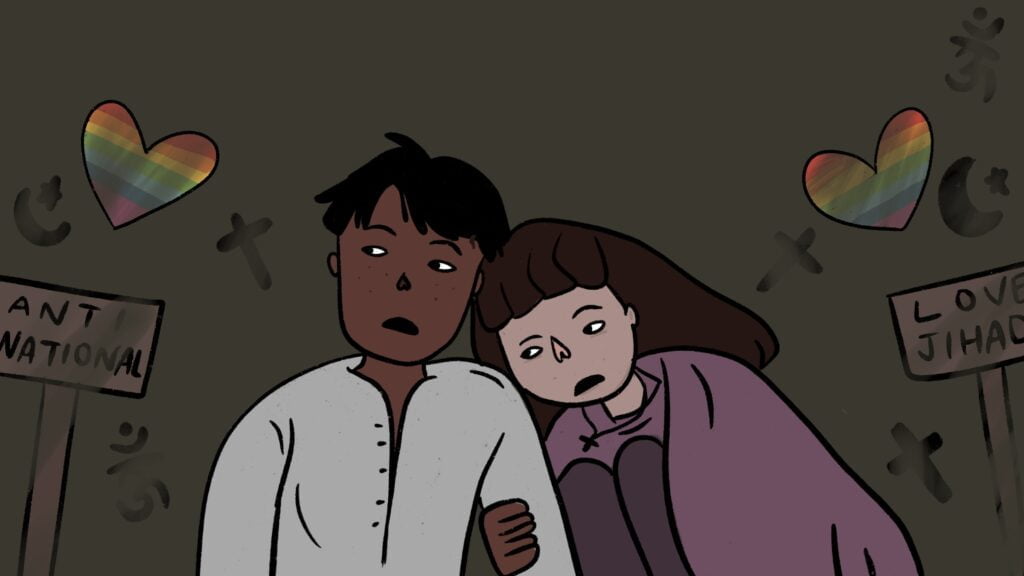
Eisha Hussain, a Journalist based in Delhi, states, “The society’s conception of love is so limiting that it will be a shame for me to claim that we love unconditionally. Socially, notions of love have always been governed by people’s socio-economic identifiers such as race, gender, class, ethnicity, religion or even colour.”
Love in India with so many cultures, religions, castes and classes, living in close proximities, is bound to happen. But the crackdown on intimate relations and exchange is limiting the purview and perception of love among people and as a consequence regression takes place.
“The idea of love jihad is a fundamentally flawed one. It commodifies and dehumanises while hypersexualising women’s bodies and existence. Such narratives colour socially prevalent perceptions of love and typically go against what essentially love is. Propagandists use conspiracies like Love Jihad to suppress love’s ability to transcend differences“, Hussain adds.
According to Pew research, “Indians simultaneously express enthusiasm for religious tolerance and a consistent preference for keeping their religious communities in segregated spheres – they live together separately,” the study said. This clearly indicates how there is an unwillingness and apprehension among youth to fall in love and marry outside of their religion, caste, region, culture, communities Etc because the atmosphere of the country doesn’t allow one to form bonds outside of your bubbles of identities.
Gender minorities are also not safe from the snares of the right wing. With India decriminalising its colonial regressive section 377, gender minorities faced relief on the face of it, but the truth remains far-fetched. Same rights like marriage are not provided to gender minorities. With the BJP MP Subramanian Swamy saying, “It (homosexuality) is not a normal thing. We cannot celebrate it. It’s against Hindutva. We should invest in medical research to see if it can be cured,“, gender minorities might have to go a long way in India.
Our Restrictions on Love
“Postmodernity is the time for free experimentation, diversity, the time of myriads of possibilities, and the time when people respect the choice of the single individual for individualisation and self-development. A lot of people take those many featured chances and explore as much as they can, not only according to their economic possibilities but also according to their private way of life in their relationships. They grant themselves every personal freedom, the highest profits, and put themselves before anything else,” writes Zadie Smith. Smith’s idea of love can be referred to as a time in history to form and experiment with relationships and interact outside of our little compartments of religious, caste and class identities and many more.
Many people say that love is love unconditional, free from our inhibitions and prejudices that have been running down in us for generations. However, social, political and cultural conditioning forms and creates most of our identities and while choosing a partner, we end up in a dilemma as our conditioned traits( like personal preferences) and external factors (like caste, and class) limit our perception of love.
For Yasmeen Khan, a Delhi-born, HR Professional working in Dubai, love has no definition and no particular way to express it. “It is all about giving and feeling without conditions,” Yasmeen says to FII. When asked about loving someone beyond caste and class barriers, she says, “I don’t know about the future but love has nothing to do with caste, class and religion. Love is giving and receiving without expectation“.
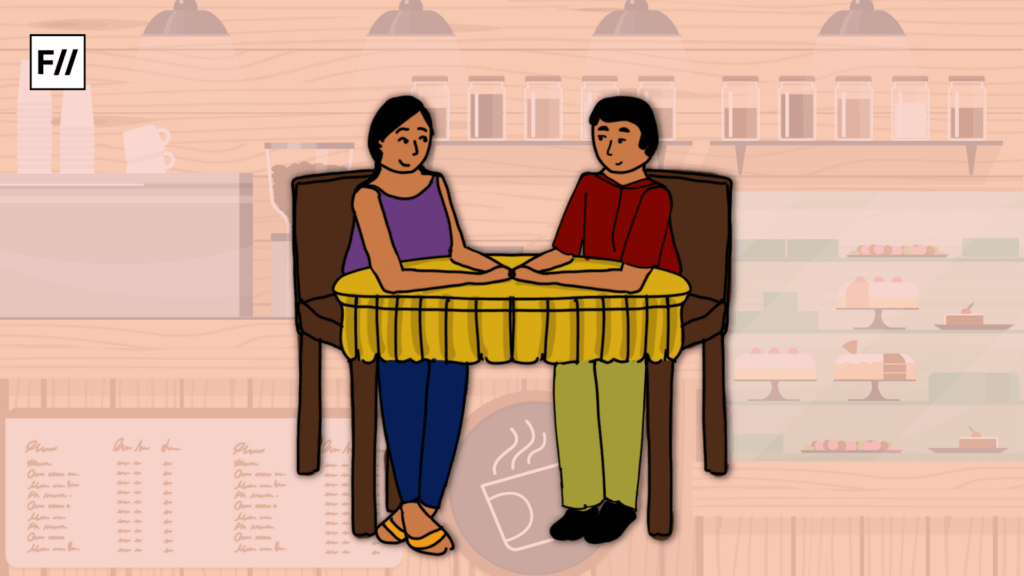
BBC, in an article, mentions, “In a 2014 survey of more than 70,000 people, fewer than 10% of urban Indians said that anyone in their family had married outside their caste and not many more outside their jati or sub-caste. Interfaith marriage was even rarer – just 5% of urban respondents said that anyone in their family had married outside their religion“. This statistic gives us a reflection of the current state of our society as the unwillingness to love unconditionally as mentioned already, right be because of our limitations and the greater limitations put down by power structures.
Also Read: War On Love: Rising Right Wing Narrative On Love Jihad In New India
For Anupam Pandey, a journalist from Delhi, “Love is certainly not like any other transaction, I sort of agree with Robert Sternberg when he says, there are three components of love, intimacy, passion and commitment. When I was a child I used to think love is unbridled and unconditional but now I think it requires a certain commitment to maintain and grow.“
So identifying the problematics of our prejudices and restrictions owing to power structures as the limitation on love is a better way of understanding how we love and how unconditionally we love.
Love Remains
In Catherine Belsey’s words, “Love occupies a paradoxical position in post-modern culture; it is at once infinitely and uniquely desirable on the one hand and conspicuously naive on the other“. Love, affection, and intimate emotional and physical exchanges do exist but undoubtedly the external; patriarchal institutions, caste hierarchies and biases, sociopolitical climate, consumerism, authoritarian governments, theocratic regimes, conspiracies like love jihad, and internal factors like personal biases rooted in conditioning through external factors do form our understanding and idea of love and intimate relationships.
Upasana Dandona, a student at SOAS university, London, believes, “While love should not be a social transaction, I think in today’s time again, because of capitalism, everything has turned into a transaction. Everything is like a barter system where you give something and you get something in return. And I think that is not right, I think love should be pure and I think it should not be a social transaction, but obviously, it has become a transaction.“
Also Read: In The Name Of Cow: Love In The Time Of Fascism
“And even with my relationships, I don’t know how many of them are genuine because of that and how many are just a part of my life because, you know, I ultimately need someone to survive if that’s making any sense,” says Dandona to FII.
As times get tougher with growing vigilantism and surveillance, oppression of minority castes and religions and genders, love becomes the need of the hour. Love remains among us whether conditional or unconditional, through small rebellions, dismantling hegemonic power structures, various safety acts and protection from the state, through some old thoughts giving way to new understanding among the old generation and new ideals among youth.
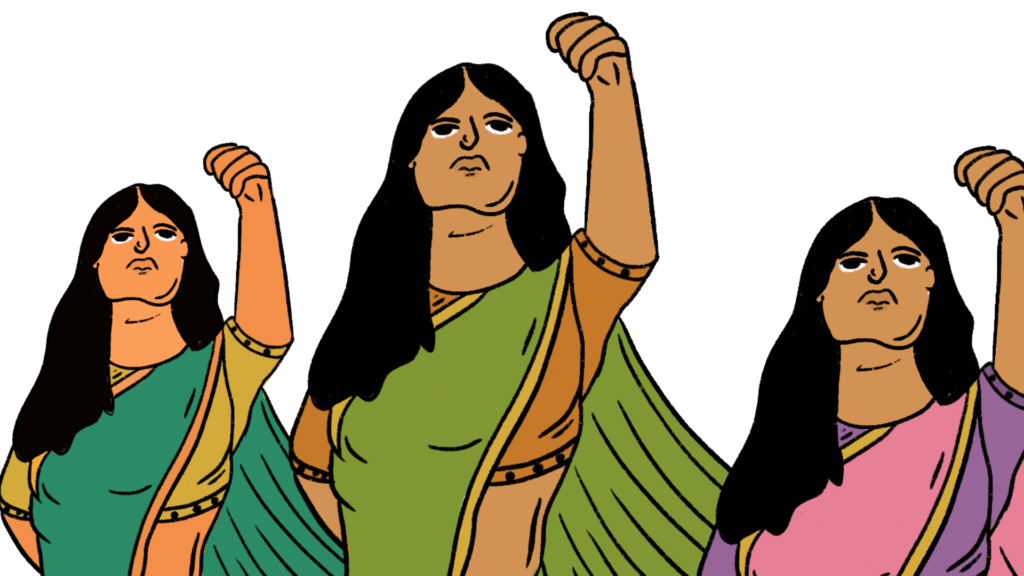
Love becomes the greatest value system that needs to thrive, sustain and emerge victorious in times of restrictions, over-asserting power structures, regressive conspiracies and laws, demoted values and surveillance.
As Catherine Belsey, rightly says, “Can’t buy me, love.”
